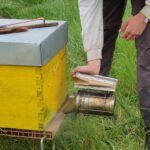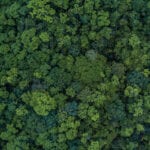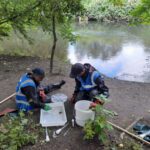Packaging firm partners with bee monitoring expert on biodiversity mapping
Sustainable packaging company DS Smith has reported the first results from a scientific partnership that uses bees to monitor environmental conditions around its industrial...
Study upends “plant trees everywhere” strategy for climate action
Forests are most effective for climate regulation when conserved or restored in their natural or native locations, according to a new study.
The importance of...
Anti-nature rhetoric damaging voter confidence in Labour, says poll
As wider electoral difficulties for Labour continue to come into view, a new poll published on 4 February suggests that the party’s rhetoric on...
Innovative uses for historic landfill sites
Approximately 0.41% of England and Wales’ land area consists of historic landfill sites, which are often challenging and potentially risky to redevelop due to...
Plastics treaty negotiations scheduled to restart, and report sets out recommendations for a reset
A new report published on 2 February identifies critical challenges in the Global Plastics Treaty negotiations and sets out practical steps to strengthen the...
Community-led data tool to help build picture of river health in Thames Basin
Environmental charity Thames21 has launched a new online dashboard that - for the first time - brings together key datasets on river health gathered...
Project characterizes constructed soils to determine suitability for urban landscape planning
In urban areas, soil is often moved in opposite directions: on the one hand, excavated material is removed from construction sites and often ends...
Biofilms might be key to supporting the health of space missions
New research appears to signal a reframing (or the need for one) in relation to how biofilms are viewed in space biology, and the...
Nature groups reveal flaws underpinning government’s nuclear review, and warn of potential for catastrophe
The government's review of nuclear delivery, published in November, is based on misleading advice, says new research published by The Wildlife Trusts, a federation...
Seabird studies don’t add up, says wind energy industry body
Methods used to calculate the potential impact of offshore wind farms on seabird populations could be substantially overestimating the true impacts, meaning they may...
Tackling the issue of empty homes: CIEH conference explores options
There are currently around 750,000 empty homes in England, and around 300,000 long-term empty (vacant for over six months). Bringing empty properties back into...
£490k peatlands restoration to proceed in Falkirk and North Lanarkshire
SP Energy Networks has committed £490,000 to a major peatland restoration project on Scotland’s Slamannan Plateau. Working with Buglife Scotland, the initiative aims to...
Marine Recovery Fund aims to boost nature and offshore wind development
The Government announced its Marine Recovery Fund on Wednesday 17 December, an initiative intended to to safeguard Britain’s marine biodiversity and energy security.
By means...
BNG reforms not as drastic as feared, but still significantly weaken nature protections
“A nightmare before Xmas for nature” was one take on the changes to rules on Biodiversity Net Gain (BNG) announced by Housing Secretary Matthew...
Businesses and experts back Biodiversity Net Gain for small sites
Businesses and experts from across the construction and built environment sector have published an open letter asking the Government to retain Biodiversity Net Gain...
Project uses heavy-lift drones to seed trees in upland areas in the Scottish Borders
A groundbreaking woodland creation project in the Scottish Borders has seen advanced drone technology deployed to seed over two million native trees across inaccessible...
Research flags light pollution as a silent threat to the planet (and one easily...
New research seems to have revealed for the first time the full extent of how Artificial Light At Night (ALAN) is increasing carbon released...
Government announces strengthened Environmental Improvement Plan
The UK government published its revised Environmental Improvement Plan (EIP) on Monday 1 December, presented as a five-year roadmap to tackle the nature and...
Attacking nature protections with fudged figures is not the solution to slow growth: rivers...
A statement from Mark Lloyd, Chief Executive of The Rivers Trust
Yesterday , several prominent newspapers published articles quoting a government-commissioned report into the spiralling...
New portable DNA toolkit targets global illegal wildlife trade
A new portable, rapid DNA test can be used to identify illegal wildlife products on the spot.
Its developers say the groundbreaking new tool promises...






















